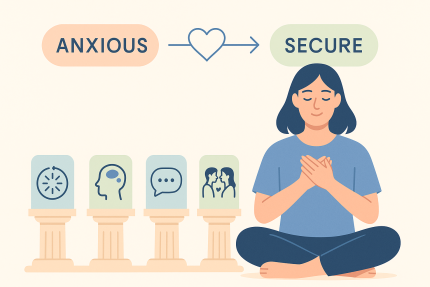Unlocking Your Potential with Online Courses: A Comprehensive Guide to Lifelong Learning
- 15 August 2022

In today's rapidly evolving world, learning has become an indispensable part of our lives. Whether you are a student, a working professional, or a stay-at-home parent, there is always something new to learn. With the advent of online courses, learning has become more accessible than ever before. In this article, we will explore the benefits of online courses, the different types of courses available, and how to choose the right course to help you achieve your personal and professional goals.
The Advantages of Online Courses
Online courses offer several advantages over traditional classroom-based learning. Firstly, they are more flexible, allowing you to study at your own pace and on your own schedule. This is particularly beneficial for working professionals and parents who may have limited time to devote to learning. Secondly, online courses are often more affordable than traditional courses, making them accessible to a wider range of learners. Additionally, online courses often provide opportunities for interaction with a diverse range of learners from around the world, which can be a valuable source of learning and inspiration.
Another advantage of online courses is that they provide a more personalized learning experience. Many online courses use adaptive learning technologies that tailor the course content and pace to each learner's needs and learning style. This can result in a more efficient and effective learning experience. Additionally, online courses often provide access to a wide range of multimedia resources such as videos, simulations, and interactive activities, which can enhance the learning experience.
Online courses can also be a great option for learners who are self-motivated and self-directed. With online courses, learners are often responsible for setting their own goals, managing their own time, and monitoring their own progress. This can be a valuable skill to develop, particularly in today's fast-paced and rapidly changing world.
Types of Online Courses
Online courses come in a wide range of formats and cover a vast array of subjects. Some of the most popular types of online courses include:
- MOOCs (Massive Open Online Courses): These are free online courses that are open to anyone with an internet connection. They are often offered by leading universities and cover a wide range of subjects.
- Microcredentials: These are short courses that focus on specific skills and are designed to be completed in a short amount of time. They are often offered by online learning platforms such as Coursera, edX, and Udacity.
- Professional Development Courses: These are courses that are specifically designed to help working professionals acquire new skills or upgrade their existing skills. They are often offered by industry associations, professional organizations, and online learning platforms.
- Language Courses: These courses are designed to help learners acquire a new language or improve their existing language skills. They are often offered by language schools and online learning platforms.
Choosing the Right Online Course
Choosing the right online course can be a daunting task, particularly given the vast array of courses available. To help you make an informed decision, consider the following factors:
- Your Personal and Professional Goals: Choose a course that aligns with your personal and professional goals. For example, if you want to enhance your marketing skills, consider taking a course in digital marketing.
- Course Content and Format: Make sure the course content and format meet your learning needs. Consider the course structure, the type of assessments, and the level of interaction with instructors and other learners.
- Instructor Expertise and Reputation: Look for courses taught by experienced and reputable instructors. Research the instructor's credentials, reviews, and teaching experience.
- Course Duration and Time Commitment: Consider the course duration and time commitment required to complete the course. Make sure you have enough time to devote to the course and that it fits into your schedule.
In addition to the factors mentioned, it's also important to consider the reputation and quality of the online learning platform or provider. Look for platforms that have a proven track record of providing high-quality courses and resources. Consider reading reviews and ratings from other learners to get a sense of the platform's strengths and weaknesses.
It's also important to be aware of the potential downsides of online courses. For example, online courses can be isolating and may lack the social and collaborative aspects of traditional classroom-based learning. Additionally, online courses require learners to be self-motivated and disciplined, which can be challenging for some learners.
Online courses offer a wealth of opportunities for lifelong learning and personal and professional development. By choosing the right course and committing to the learning process, you can unlock your potential and achieve your goals. So why wait? Sign up for an online course today and start your learning journey!




